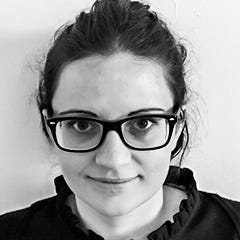Mini-Symposium: The Evolution and Application of Brain Organoids to Study Human Disease
During this virtual symposium, Drs. Vivi Heine (Amsterdam UMC), Veronica Krenn (IMBA), and Melvin Evers (uniQure) discuss how brain organoids are providing powerful model systems for understanding health and disease in a human-specific context.
Organoids have rapidly transformed researchers' ability to model human tissues in vitro. In neural research, organoids have revolutionized the study of brain development, health, and disease by enabling direct observations in human tissueãpreviously a significant challenge for both practical and ethical reasons.
Brain organoids present a unique opportunity for researchers to study viral pathogenesis in a human tissue model. During this virtual symposiumãpresented by ¤Öêü°å¿ü and OrganoVIR, a Marie Sklowdowska-Curie Actions (MSCA) Innovative Training Network funded by the European CommissionãDrs. Vivi Heine (Amsterdam UMC), Veronica Krenn (IMBA), and Melvin Evers (uniQure) discuss how brain organoids are becoming powerful model systems for understanding health and disease in a human-specific context.
About the Speakers:




Dr. Vivi Heine, PhD
Associate Professor, Amsterdam UMC
Vivi Heine is an Associate Professor of neuroscience and clinical genetics at Amsterdam UMC. Her research focuses on identifying and understanding the contributions of glial defects in neurodevelopmental disorders, and developing iPSC-based model systems to address basic and translational research questions.

Dr. Veronica Krenn, PhD
Postdoctoral Fellow, IMBA
Veronica Krenn is a cell biologist working as a postdoctoral researcher in the laboratory of Jû¥rgen Knoblich at the Institute of Molecular Biotechnology (IMBA). There, she established several brain organoid infection models to study the impacts of viruses on brain development. Using these models, she describes unique aspects of viral pathogenesis and their contributions to brain damage.

Dr. Melvin Evers, PhD
Associate Director Research, Head of Emerging Targets and Technologies, uniQure
Melvin Evers is based at uniQureãs Amsterdam research hub, and is focused on the development of gene therapies for patients with serious unmet medical needs. He has been closely involved in the preclinical development of AMT-130, the gene therapy candidate for Huntington's disease, now in Phase I/IIa, as well as the early development of a gene therapy for spinocerebellar ataxia type 3 (SCA3).
Publish Date:
November 25, 2020
Request Pricing
Thank you for your interest in this product. Please provide us with your contact information and your local representative will contact you with a customized quote. Where appropriate, they can also assist you with a(n):
Estimated delivery time for your area
Product sample or exclusive offer
In-lab demonstration
By submitting this form, you are providing your consent to ¤Öêü°å¿ü Canada Inc. and its subsidiaries and affiliates (ã¤Öêü°å¿üã) to collect and use your information, and send you newsletters and emails in accordance with our privacy policy. Please contact us with any questions that you may have. You can unsubscribe or change your email preferences at any time.



